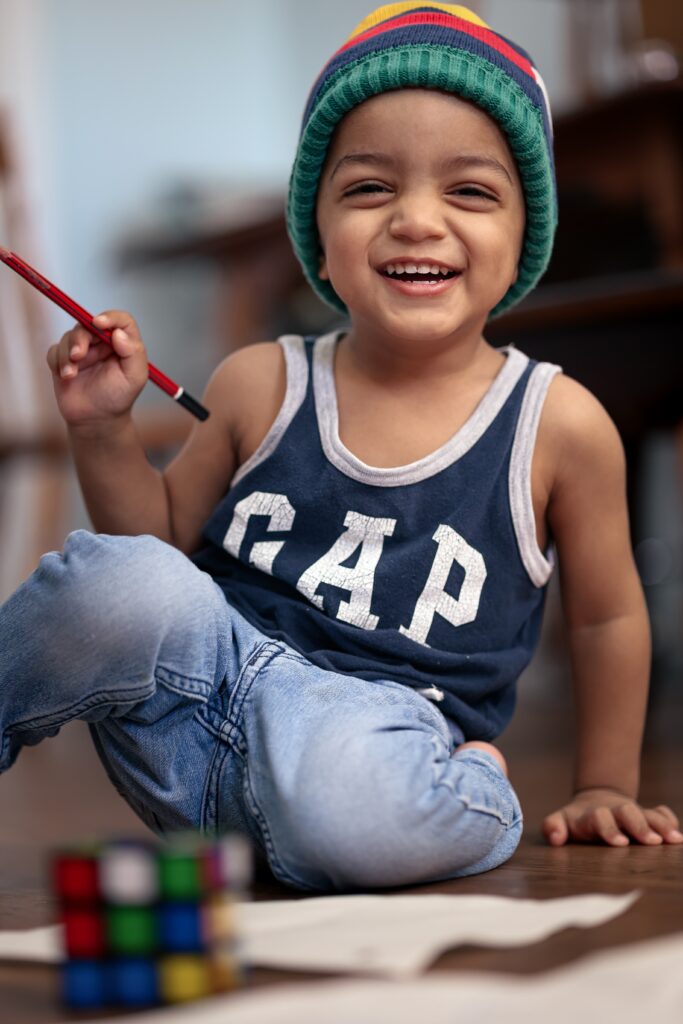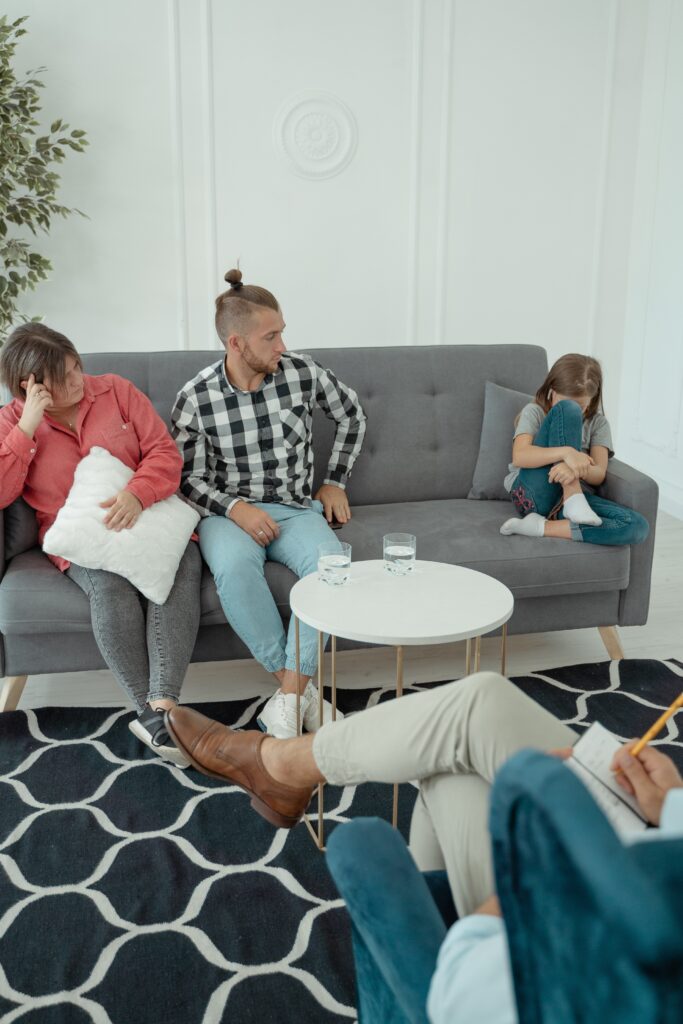Psychology has been around for quite a while in the modern western world, with its clinical practitioners working hard to help humans solve a lot of issues they have with their mental state. Issues that range from eating disorders and addiction to depression and even suicidal thoughts and tendencies. Unfortunately for many parents out there, these issues are in no way reserved only for adults. Many children can suffer from psychological issues at very early ages. Unless these problems are dealt with early on, they will just get worse through adulthood and really cripple an individual’s capacity to learn, love and experience the best out of life.
Taking your child to see a child psychologist is an incredibly terrifying proposition. As parents, you hope and wish for the best, and you do whatever you can, moving the heavens and earth to ensure that your child is safe, happy and healthy. Though sometimes despite your best efforts, your child may still need professional help. Here are a few of the critical signs that your child may need to see a psychologist.
Signs That Your Child May Need to See a Psychologist
Difficulties at Home and School
Most children are going to have a few challenges at home and school. Though for issues that go beyond a few minor outbursts or a fit of the silent treatment because they didn’t get their way, you may start to notice serious problems developing. For instance, behavioural issues at school with your child involved in fights, especially as the bully, can be a significant tell-tale sign. If they’re having outbursts at home and aren’t acting like the kid you recognize, something may be going on that you simply cannot fix on your own.
Isolation from Friends and Family
Some children take on solo habits and enjoy playing alone instead of with friends. Though as a parent, you will be able to observe the differences between a child wanting to be left alone, and in a child actually being alone. Children that withdraw entirely from their friends, and their family, may be going through some trauma that you do not recognize. A child psychologist is a professional in this area and will be able to help.
Always Sad and Worried
Is your child sad a lot? Do they worry about adverse outcomes? Children thankfully have a series of mechanisms internally that allow them to process information without focusing on the dread. Most children do not grasp what’s going on around them, and so they’re not eaten alive by depression and anxiety, like many adults. So if your child does start developing this sort of sadness and worrying nature, it’s a sign that something’s wrong and that they need to seek some help.
Developed Self-Destructive Behaviors
This sign is one that everyone is aware of, in terms of children needing to get help. Children who have destructive behaviours have experienced some sort of trauma and need a way to have it diagnosed and challenged. These behaviours could include hurting other children or animals, fighting with the family, setting fires, using bad language, etc. For girls, especially, these destructive behaviours can rear their ugly heads in the form of eating disorders. If you see any of these behaviours developing, you know that it’s time to seek help.
Focuses on Dread
Dread is something no one wants to experience. It’s a feeling like life is nothing but a slow, painful walk along a tight rope, as you’re waiting for something to drop on your head. It’s day after day, thought after thought, of believing something terrible is inevitably going to happen. It sucks the joy out of life and leaves people living on pins and needles. Unfortunately, some children do start to develop a sense of dread. If you recognize this in your child, understand that it’s not some normal phase. They may need professional help.
Always remember, no matter your child’s experience, there is qualified, professional help out there for your child. No parent has to go through this alone. If you recognize any of these signs, please contact the professional doctors today.
Regression
When a sibling is born or when there are significant life changes, regressions might happen. It’s worth investigating why it seems to happen for no apparent cause. These are a few of the most typical indications that your child may require counseling.
Social Isolation
Isolation from classmates, the environment, and perhaps even the parents is a red flag for any problem. Additionally, you should observe your child avoiding social situations.
Children usually ignore social engagements when they are anxious or unhappy. It is important to recognize that if this happens regularly and starts to have a severe impact on their interpersonal interactions, it can be more than just a sad day.
Shyness or introversion in your youngster may be a sign of social isolation. These are a few ways young people can isolate themselves socially when they are pamper
Self-harm
You should seek quick assistance if your child has any thoughts or feelings of harming themselves. This can occasionally be subtly present and accompanied by emotions of loneliness and powerlessness. Sometimes, more overt indications that it’s happening include suicidal thoughts or cutting.
Younger children can think cutting or suicidal thoughts are excessive. Self-harm, however, can take many various forms. Young children who self-harm may strike themselves, slam their heads against objects, or stab themselves in the flesh. Any self-harming behaviors should be noted right once, and you should seek assistance for your child.
Increased Physical Complaints
Children’s mental health problems can occasionally present as physical signs like headaches and stomachaches. The next step is to see a mental health expert after consulting with your doctor about any potential medical problems.
There are certain emotionally taxing, demanding, and painful experiences in life. Speaking with a professional might be advantageous for your child.
How to Find a Mental Health Professional for Your Child
You should first talk to your child’s doctor. In order to further explore your worries, Dr. Eshleman advises reviewing them with someone who is knowledgeable in typical child development and, ideally, someone who also knows your child. The child’s doctor can direct you to the appropriate referral sources and is likely to have a list of them.
To be clear, you do not need to wait until you exhibit “warning signs” in order to seek out a mental health expert. If you know your child is going through a stressful period and/or a major life change, you may want to proactively seek out a counselor or psychologist. Doing so can be helpful for you and your child.
Give Your Child the Help They Deserve
Children typically feel uncertain, depressed, or frustrated in difficult situations. They might not, however, be equipped with the required coping mechanisms to manage these feelings. Children could find it challenging to deal with stressful situations and life upheavals on their own. If your child looks to be having trouble adjusting to major life changes—such as a death, a divorce, a move, a change in schools, the arrival of a new sibling, or even a breakup—you should seek professional help. Consider seeking additional support. These are the indications that your child requires psychological help.
It shouldn’t be challenging or emotionally draining to assist your child. Dr. Neha Mehta focuses on those who live in at-risk neighborhoods and who might not have access to the care they require. Additionally, we provide customized child therapy.
As soon as you see the warning signals, you may assist your child in getting the treatment they require. You can be sure that you’ll be aware of the signs to look out for in terms of the mental and emotional well-being of your child.
Benefits
When coping with life’s challenges, children can gain a lot from child therapy. It promotes a reduction in anxiety and sadness as well as an enhancement of one’s sense of self-worth, social skills, and self-confidence. When kids see a professional, they can learn how to better control their emotions and understand how their conduct is related to them, giving them the chance to better control both healthy feelings and reactions.
Why is it Needed?
Children experience pressure and issues, just like adults do, sometimes under their control, sometimes not. Children face challenges in everything from academics to friendships to family. They frequently need aid from others to get through challenges, unlike adults.
To appeal to your child and their developmental stage, these can be done in a variety of innovative ways. For instance, many youngsters enjoy constructing and building things, and they feel better at ease using these play activities as tools to get through a session.
How Does it Work?
A therapist puts a lot of effort into establishing a trustworthy rapport with your child so they can speak freely. Regardless of the therapeutic modality, the main objective of a therapist in child therapy sessions is to create a welcoming environment where kids can feel heard and safe.
Types of Therapy for Children
- Play therapy – The equivalent of psychotherapy for adults is play therapy for kids. To help kids communicate their emotions more readily through toys rather than words, play therapy makes use of play, a child’s natural means of expression.
- Talk therapy – Mental health experts interact with their patients through talk therapy, sometimes called psychotherapy. Talk therapy is meant to aid in the identification of problems that are generating emotional pain.
- Family therapy – A form of psychological counseling (psychotherapy) called family therapy can assist family members in enhancing communication and resolving conflicts. A psychologist, professional social worker, or a certified therapist typically offers family therapy.
- Parent-child therapy – By teaching parents how to use consistent, nonviolent disciplining methods when children act up, and by encouraging pleasant interactions between parents and kids. Children exhibit more good behaviors as a result of these stronger interactions and relationships.
- Eye movement desensitization and reprocessing – A planned therapy that encourages the patient to pay attention to the traumatic memory for a brief period of time while also undergoing bilateral stimulation (usually eye movements) is linked to a decrease in the emotional intensity and vividness of the traumatic memories.
- Cognitive-behavioral therapy – Is a talking therapy that might assist you in managing your issues by altering your attitudes and behaviors. Although it can be helpful for various mental and physical health issues, it is most frequently used to treat anxiety and depression.
Conclusion
Parents may find it challenging to determine whether their child needs to consult a psychologist. But there are some warning signals to be aware of, like adjustments in behavior, mood, or academic performance. Children who seek professional assistance are more likely to have the resources they need to manage life’s problems and live happier, more satisfying lives. By being honest and encouraging, as well as by getting help when they need it, parents may play a significant part in promoting their child’s mental health. Never forget that asking for expert assistance is not a sign of weakness but rather a proactive move to enhance a child’s overall well-being.



